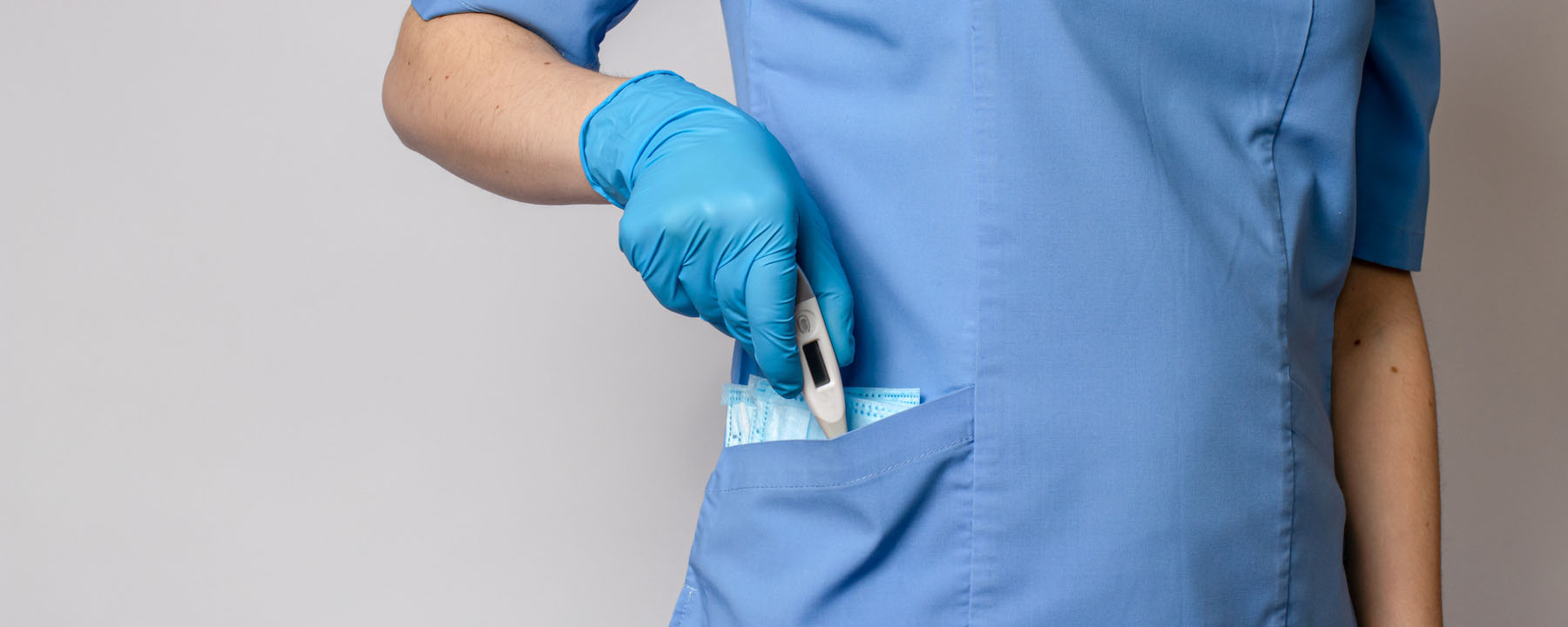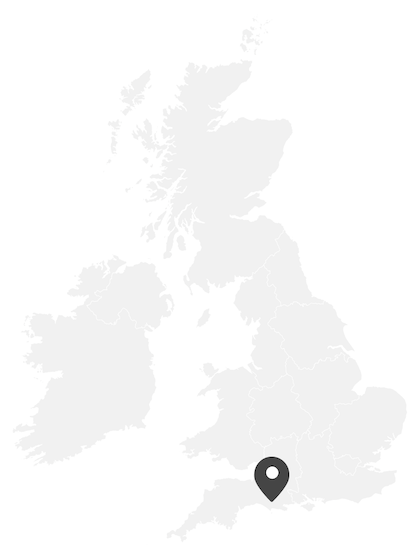Nursing in Dorchester: Studying, working, and living guide
Find out about nursing in Dorchester - where nurses can find jobs, the hospitals they might work in, colleges & universities to study in, plus living information.

Dorchester is the county town of Dorset on the south coast of England.
It is located on the banks of the River Frome to the south of the Dorset Downs.
A market town, Dorchester is known for its rich history dating back to Roman settlements.
Dorchester could be an ideal place for nurses to relocate to for study and work.
Here is an end-to-end guide for Nurses wanting to study or work in Dorchester.
Where do Nurses work in Dorchester?
There are numerous places for nurses to work within Dorchester.

Dorset County Hospital.

Prince of Wales Surgery Dorchester.

The Winterbourne Hospital (Private).

Dorset Private Medical Clinic.
There are a multitude of health-related places to work in across Dorchester. These are just a few of the major employers and there are thousands of ready-to-fill vacancies for Nurses throughout Dorchester for anyone wishing to live and work here.
Inpatient Unit, Dorchester - Wedlmar
Find nursing jobs in Dorchester at Weldmar Inpatient Unit, operated by Weldmar. On these facility pages by Weldmar you can find career information & jobs for nurses, home managers and care assistants in Dorchester (depending on whether they are running vacancies at the time of publishing).

Where do aspiring Nurses study in Dorchester?
There are many educational places that aspiring Nurses can study at in Dorchester.
Locally, University Centre Kingston Maurward located in Dorchester offers a small selection of health and caring professions courses. These courses start in September.
However, would-be nurses should consider applying to Bournemouth University which offers a far greater choice of Nursing courses including Nursing and Midwifery and Adult Nursing with start dates for September and October at their Yeovil Campus (20 miles).
Students can also study at Health Sciences University at their Bournemouth campus (30 miles) which offers a small selection of health-related courses with start dates in September.
Find our nursing university guide here.
The average monthly rental in Dorchester is around £1130 per month. But if you are looking to rent a room in a shared house, the average cost is just over £600.
Where do Nurses live in Dorchester?
Nurses live all over Dorchester and surrounding areas.
Some of the best places to live in Dorchester are:
Poole.
Popular area for families due to its good schools, local amenities, and rural walks to explore in the area.
Blandford.
A sought-after area due to its wide variety of local shops, pubs and independent boutiques and restaurants making it a lovely place for nurses to live.
Ferndown.
A large inland town in Dorset and is very popular due to its good and outstanding Ofsted rating schools in the area as well as its immense choice of local amenities and restaurants.
Sherborne.
Would be a great place for Nurses and their families due to its strong selection of schools in the area and the direct transport links for commuters to London Waterloo.

What are the living costs for Nurses in Dorchester?
Dorchester is an affordable town with a marginally lower cost of living compared to similar towns and cities across the region.
Here is a general guide to some of the different costs of living in Dorchester.

The average price for a home in Dorchester currently £341,744 which is above the national average of £293,000 – according to Rightmove.

The average rental price for a property in Dorchester is £1,050 per month. But if you are looking to rent a room in a shared house, the average cost is just over £600 depending on the area of Dorchester.

Council tax costs vary across the United Kingdom but in Dorchester many people reside in a Band B property or similar which means paying £2016 per year, which works out to just under £168 per month.

Bills like shopping and utilities are priced along the same lines to the rest of the UK.
Is travel easy in Dorchester?
Dorchester has good major road links with the A35 to Poole and the A37 to Yeovil as well as the A352 and A35 (Weymouth) and is also accessible via the M5 to Bristol.
Dorchester is easy to visit by train and has direct services to other major towns and cities across the region and further afield.
Dorchester South lies on the London Waterloo to Weymouth line with direct links to Bournemouth and Southampton. London to Dorchester is just over 2 hours and 30 minutes by train while Bournemouth can be reached within 40 minutes. Alternatively, Dorchester West Station serves Bath and Bristol.
The nearest airport to Dorchester is Bournemouth Airport which has flights across the UK and to Europe.
Dorchester is well connected for all your transport needs no matter where you are located.

What to do in Dorchester: walks, culture, nightlife and eating out
There are lots of places to visit and experience in Dorchester.
Culture and attractions
Depending on your interests and how you want to spend your free time Dorchester has attractions and places to suit all tastes.
One must-see is Hardy’s Cottage. Considered a treasured piece of history it offers a unique insight into the life and times of author Thomas Hardy. Taking a tour including a visit to the garden would be the perfect way to spend a day.
Another top recommendation is Athelhampton House offering an idyllic day out. Experience one of the finest 15th century examples of Tudor architecture and explore its famous topiary pyramids and stunning octagonal pond as well as its collection of roses, tulips, and lilies.
Look out for Sculpture By The Lakes with its 26 acres of countryside, woodlands, and lakes to explore while Maiden Castle offers you the chance to explore the largest Iron Age hillforts in Europe.
There are many art galleries and museums in Dorchester to visit including the Dinosaur Museum, Dorset Museum and Art Gallery and Keep Military Museum.
There are also many entertainment venues across the town with Dorchester Arts and The Corn Exchange especially popular for your music and entertainment requirements.
Sports fans can indulge in the talents of Dorchester Town Football Club who play in the Southern League Premier Division with their home matches hosted at Avenue Stadium.
Nightlife and eating out
Dorchester is known for its quality restaurants. Highlights include:
Brewhouse and Kitchen, A Popular brewpub and restaurant with a contemporary twist.
The Posh Partridge, known locally for having the best coffee and afternoon tea in Dorchester.
Kings Arms and Restaurant. A popular boutique hotel with a fantastic bar and restaurant.
Al Molo Dorchester, known for its excellent food and ranked number one on TripAdvisor.
What are the school options in Dorchester?
There are many options for schooling in Dorchester for your children.
These include a high number of Ofsted Outstanding and Good rated schools.
Dorchester has 5 Nurseries, 5 Primary schools, 3 Secondary schools and 1 private independent school.
Population and demographics in Dorchester
Here are some of the stand-out population and demographic facts in Dorchester.
Dorchester has a population of 381,300.
Dorchester’s population density is 372 people per square kilometre.
21% of Dorchester's population is made up of students.
English is the main language and is spoken by 85% of the local population.
2.5 % of Dorchester’s population is unemployed – lower than the UK average.

In summary: is Dorchester a good place to be a Nurse?
There are many sought after areas to live in Dorchester.
Dorchester has a good variety of attractions and amenities.
Living costs are slightly higher than other major towns but there is always lots of work on offer and Dorchester has a lower than the UK average unemployment rate.
Travel to and from Dorchester is easy - multiple locations can be reached easily by car or public transport.
Average salary for nurse in Dorchester £34,000 per a year.
So, your salary as a registered Nurse goes much further in Dorchester.
Here are a couple of examples:
As a newly qualified Nurse on an NHS Band 5 salary, if you rented a house, you would still have just over £1000 left in your pocket each month for everything else. Your disposable income in the Southeast would barely reach half of this figure, for example.
As a Band 6 Nurse, you would easily be able to borrow enough money to buy a joint mortgage for an average-priced flat in Dorchester. In fact, in many parts your salary would cover the cost of buying a house.
As a nursing student or Nurse, you will have an excellent quality of life with lots of things to do.




